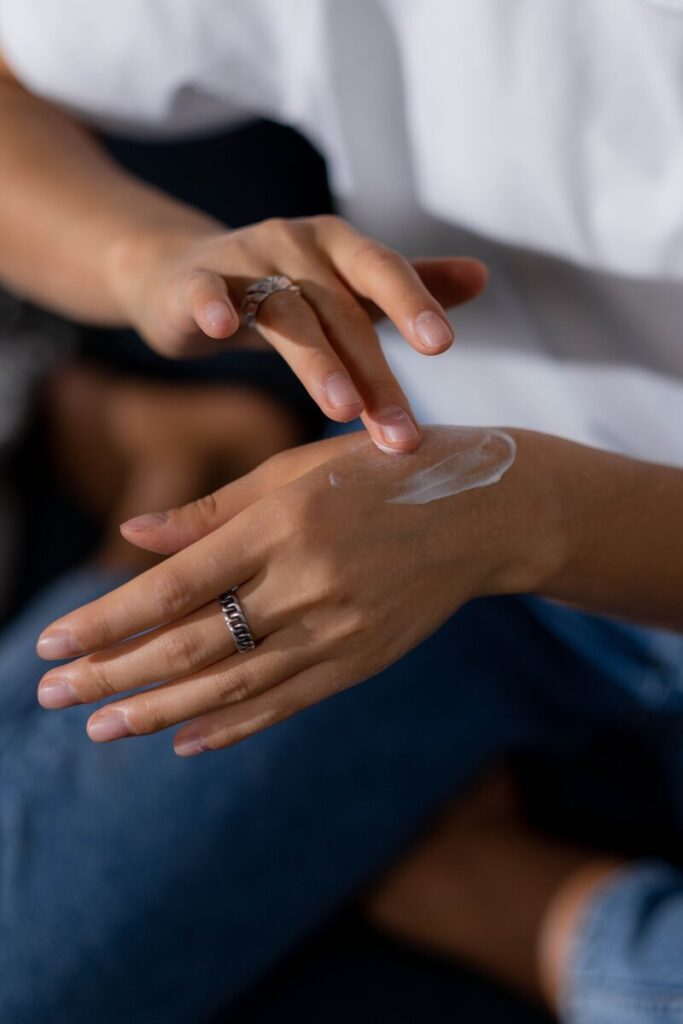If you’ve noticed your skin flaring up during stressful times such as breakouts before an important meeting, hives that appear out of nowhere, or dull skin when you’re completely drained, it’s not a coincidence. It’s not in your head. It’s science. Your skin isn’t betraying you. It’s trying to tell you something.
As a board-certified dermatologist, here’s one thing I wish more people knew: your skin is a mirror to your internal world. It’s a living, breathing organ that’s intimately tied to your mental and emotional health.
That’s really what psychodermatology is all about. It’s where skin and mental health meet. And if you haven’t heard much about it, you’re not the only one. Most doctors didn’t learn about it in training either. But understanding this connection can change how you think about your skin, and more importantly, how you care for it.
Your Skin and Nervous System Are Connected—Literally
Let’s start with the science. Your skin, brain, and nervous system all develop from the same embryologic layer — the ectoderm. They’ve been connected since before you were born. That means your skin doesn’t just reflect what’s happening inside your body, it actively communicates with your brain and stress response systems.
Here’s where it gets fascinating: Your skin has its own hypothalamic-pituitary-adrenal (HPA) axis. That’s the same stress response system your brain uses. So when you’re under stress, your skin isn’t just reacting to it, it’s producing stress hormones like cortisol. That’s why you might notice acne, eczema, psoriasis, or even hair loss during emotionally challenging times.
Common Skin Conditions That Are Triggered or Worsened by Stress
- Acne: Increased cortisol levels can drive oil production and inflammation.
- Eczema (atopic dermatitis): Emotional stress weakens the skin barrier and increases itch-scratch cycles.
- Psoriasis: Inflammatory pathways worsen with psychological strain.
- Rosacea: Stress can trigger flushing and inflammatory lesions.
- Telogen effluvium (stress-related hair shedding): A delayed reaction to emotional upheaval or trauma.
The Problem with Conventional Care
Even with all the training we receive in medicine, most physicians including dermatologists aren’t taught to approach the skin from a mind-body perspective. We’re trained to identify and treat skin conditions based on what we see. But the “why” behind what’s happening? The root causes that go beyond just topical triggers? That often gets outsourced or ignored altogether.
The problem with that approach is that it separates systems that are inherently connected. In modern health care, these pieces often get addressed by different specialists, if they get addressed at all. But for the person living in your skin, that’s you, it all feels like one interconnected system.
Shifting the Perspective: From Judgment to Awareness
It’s easy to get frustrated with your skin when it doesn’t “cooperate.” But that mindset ignores what your skin is actually doing—it’s trying to adapt. To protect you. And to signal that something deeper is out of balance.
When skin conditions flare, we often blame the surface and scramble to cover it up or switch products. But sometimes the most effective solution isn’t in your medicine cabinet. It’s in your habits. Your environment. Your nervous system. Rather than seeing your skin as the enemy, start seeing it as a messenger.
How to Support Your Skin from the Inside Out
If you’re feeling overwhelmed by your skin issues, here’s where I recommend starting:
1) Support your nervous system
Daily practices like deep breathing, mindfulness, or even short walks outside can regulate your stress response and by extension, your skin.
2) Simplify your skincare
More isn’t better. Gentle, consistent care that supports your barrier is more effective than chasing the latest trend or over-exfoliating.
3) Focus on your foundations
Sleep. Hydration. Balanced nutrition. These aren’t just wellness buzzwords. They are the backbone of healthy skin.
4) Seek care that looks at the full picture
Find providers (like integrative dermatologists or psychodermatologists) who understand the connection between your skin, stress, and overall health.
When to See a Psychodermatologist
If you’re dealing with chronic skin issues that don’t respond to treatment, or if your skin symptoms seem tightly linked to emotional ups and downs, it may be time to seek out a professional who specializes in psychodermatology. These practitioners integrate dermatologic care with tools like cognitive behavioral therapy, mindfulness, and behavioral interventions.
If you can’t find a psychoderm specialist near you, look for a dermatologist who’s open to a holistic, collaborative approach.
Real Skin Care is Whole-Body Care
Your skin is your largest organ. It protects you, communicates for you, and often takes the brunt of stress, environment, and emotion. And the more you tune into what it’s saying, the better you can care for it, not just with products, but with presence, patience, and a deeper understanding of what’s really going on underneath.
So the next time your skin flares up, instead of asking, “What’s wrong with me?” try asking, “What’s my skin trying to tell me?”
That’s where real healing begins.











